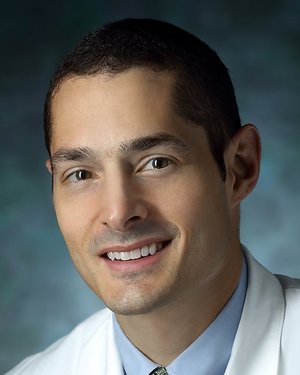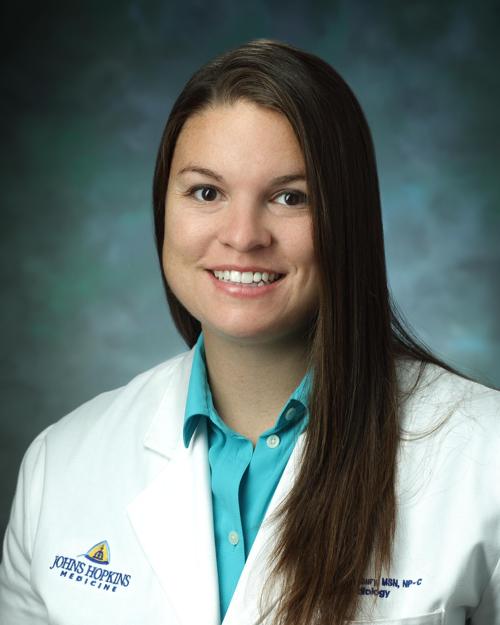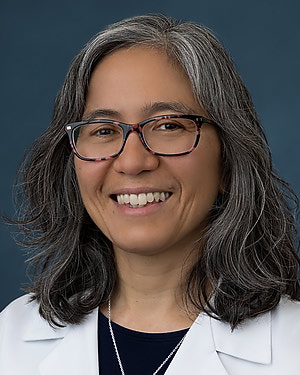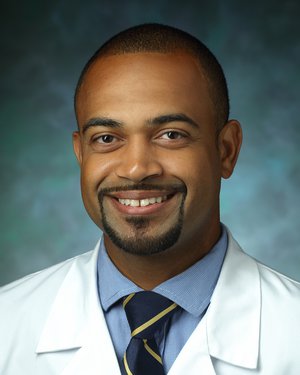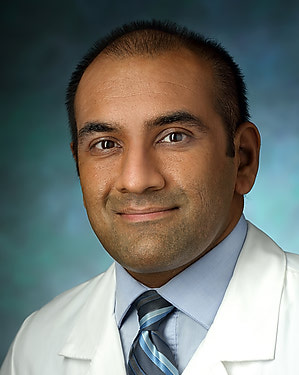-
Richard Carrick, MD PhD
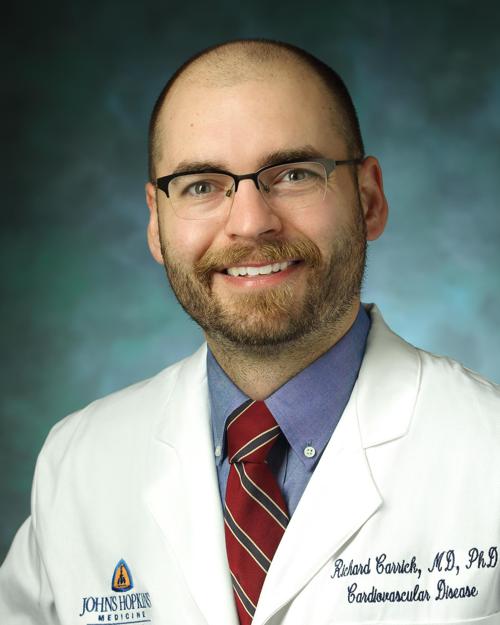
- Associate Director, Johns Hopkins Hypertrophic Cardiomyopathy Center
Expertise: Cardiology
-
James S. Gammie, MD
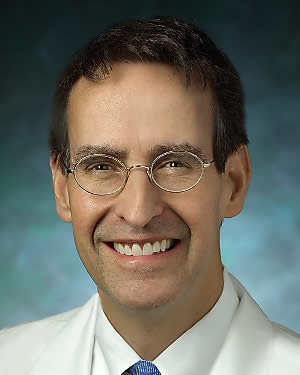
- James T. Dresher, Sr. Professor in Cardiac Surgery
Expertise: Cardiothoracic Surgery
-
Andreas Barth, MD PhD
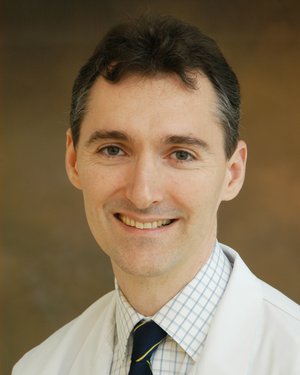
- Medical Director, Inherited Heart Diseases
Expertise: Electrophysiology, Cardiology
-
Cindy James, PhD ScM

- Research Director, Johns Hopkins Center for Inherited Heart Diseases;
Expertise: Medical Genetics, Cardiology
-
Joseph Marine, MD MBA
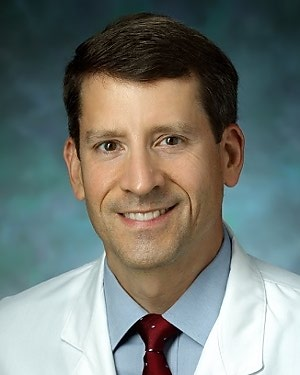
- Vice-Director of Operations, Division of Cardiology
Expertise: Electrophysiology
-
Rani Hasan, MD MHS
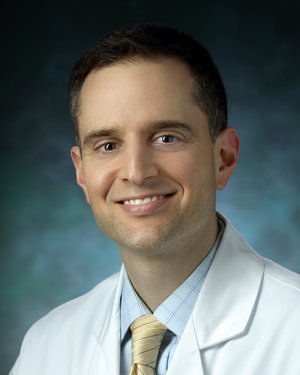
- Director, Interventional Cardiology Fellowship Program
Expertise: Interventional Cardiology
The Johns Hopkins Hypertrophic Cardiomyopathy (HCM) Center offers comprehensive, high-quality clinical care for HCM patients and their family members.
The Center is recognized as a Center of Excellence by the Hypertrophic Cardiomyopathy Association. The accreditation was awarded based on our comprehensive services and record of superior clinical outcomes by our multidisciplinary team.
-
What is Hypertrophic Cardiomyopathy?
Read articles and watch videos to learn more about HCM.

-
Our Services
We provide a full spectrum of personalized services for HCM patients and their families, including both advanced diagnostic testing and HCM-specific treatments.

-
Meet our Team
Our multidisciplinary clinical team is dedicated to providing comprehensive, high-quality care to HCM patients and their families.

-
Research
Learn more about the latest cutting-edge HCM research performed at Johns Hopkins.

-
Request an Appointment
Find care for HCM at one of our convenient locations.

Seminar: Understanding Hypertrophic Cardiomyopathy
Part 1: Basics of Diagnosis and Treatment
A panel of Johns Hopkins heart specialists provide an overview of Hypertrophic Cardiomyopathy, its medical management, pediatric HCM, genetics, and septal reduction therapies.
Part 2: Arrhythmias, Special Circumstances, and the Future
Johns Hopkins heart specialists discuss HCM, including an overview of abnormal heart rhythms, special circumstances, research, and future therapies.
Services We Provide
-
An Echocardiogram is a non-invasive procedure that uses high frequency sound waves to create images of your heart’s structure.
This test evaluates your heart’s overall function and hemodynamics (the study of blood flow). Our center evaluates the heart using several types of echocardiography:- Standard transthoracic echocardiography
- Transesophageal echocardiography
- Exercise echocardiography
- Detailed hemodynamic assessment at rest and during provocation (Valsalva, Amyl Nitrite or exercise)
- Tissue Doppler and strain echocardiography to evaluate regional and global myocardial mechanics
-
Magnetic resonance imaging uses a magnetic field and radio waves to create detailed images of an organ’s structure. We perform MRI scans that target the heart which can assess the overall function of the heart even for patients with internal devices.
Our team also evaluates novel disease markers by magnetic resonance spectroscopy (MR Spectroscopy). -
We evaluate the risk for sudden cardiac death through clinical and non-invasive testing. One non-invasive test we perform is an electrophysiological study, where thin wire electrodes are inserted into a vein and into the heart, where the measure the heart’s electrical signals. Our specialists then determines the need for defibrillator implantation and performs implantation of defibrillators and pacemakers.
The Johns Hopkins Hypertrophic Cardiomyopathy Center also provides atrial fibrillation treatment which includes pulmonary vein isolation (PVI), a cardiac ablation procedure that creates scar tissue where all four pulmonary veins join. This procedure reduces the symptoms of atrial fibrillation by stopping abnormal electrical signals in the heart. -
Our clinic performs cardiopulmonary testing and has experts that monitor and treat heart failure. We evaluate pediatric and adult patients for heart transplantation and perform them when necessary.
-
Interventional cardiology treats heart diseases with catheter-based procedures. Our specialists perform diagnostic coronary angiography, where heart abnormalities are detected during an x-ray.
Percutaneous alcohol septal ablation for obstructive HCM is another non-surgical procedure that reduces symptoms and future complications for HCM by injecting alcohol through a catheter where the heart area is thick, minimizing the heart thickness and improving blood flow. -
Our team performs a variety of procedures for patients including surgical myectomy for obstructive HCM and valve repair.
-
Family-focused care is our core mission. We provide genetic counseling through The Johns Hopkins Center for Inherited Heart Disease, where family members at risk are identified and monitored by our team.
Meet our Team
Bryana Rivers, MS, CGC
Johns Hopkins University School of Medicine, Baltimore, Maryland

Research Highlights
- Development and Validation of a Clinical Predictive Model for Identifying Hypertrophic Cardiomyopathy Patients at Risk for Atrial Fibrillation: The HCM-AF Score
- External validation of atrial fibrillation risk prediction tools in a racially diverse cohort of hypertrophic cardiomyopathy patients
- How and Why to Organise Family-Based Screening Clinics for Hypertrophic Cardiomyopathy
- Mavacamten in Right Ventricular Outflow Tract Obstruction
- Eighteen-Month Real-World Experience Using Mavacamten for Treatment of Obstructive Hypertrophic Cardiomyopathy in a Racially Diverse Population
- Identification of high-risk imaging features in hypertrophic cardiomyopathy using electrocardiography: A deep-learning approach
- Editorial commentary: Is it finally prime time for artificial intelligence to improve the care of patients with hypertrophic cardiomyopathy?
- QRS Fragmentation as a Risk Marker for Sudden Death in Hypertrophic Cardiomyopathy
- Impact of comorbidities on atrial fibrillation and sudden cardiac death in hypertrophic cardiomyopathy
- Ventricular Septal Myectomy Decreases Long-Term Risk for Atrial Fibrillation in Patients With Hypertrophic Cardiomyopathy
- Outcomes in Patients With Hypertrophic Cardiomyopathy and Left Ventricular Systolic Dysfunction
Locations for Care
-
Johns Hopkins Cardiology-Columbia
5450 Knoll N Drive
Columbia, MD 21045
-
Johns Hopkins Children’s Center
Blalock-Taussig-Thomas Pediatric and Congenital Heart Center
600 N. Wolfe St
Baltimore, MD 21205
-
Johns Hopkins Green Spring Station
10755 Falls Rd
Lutherville-Timonium, MD 21093
-
Levi Watkins, Jr, MD, Outpatient Center
601 N Caroline St
Baltimore, Maryland 21287




